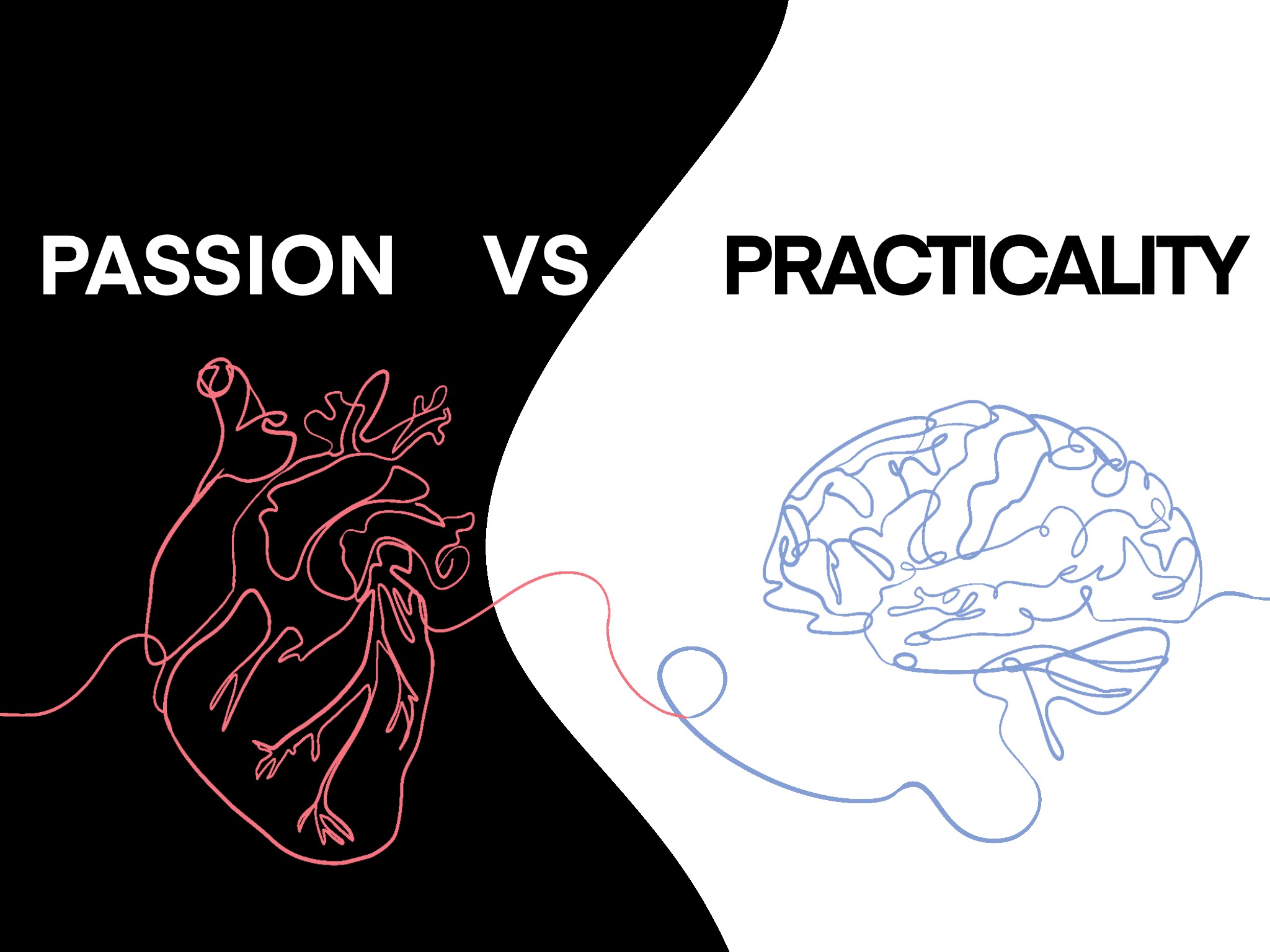Some jobs are high risk.
You might wonder why kids who tell their parents they want to be actors or artists or sports professionals are often met with shock, dismay and a lack of support. Parents have the best interest of their children at heart, so why do most react this way?
High risk professions
How do we identify high risk professions? Here I have defined risk from an economic perspective – the ability to earn a reasonable living commensurate with the effort invested. High risk professions are those in which there is a large disparity in the amount of income people earn. For example, a highly ranked tennis player such as Djokovic earns over $9,100,000 while a lower ranked player like Micheal Mikula (ranked 1000) earns just over $4000. Kiranpal Pannu ranked 664, earns around $7,000 in prize money, but his expenses, predominantly for travel, costs $34,500. “It’s hard to really consider myself a professional when I can’t even really provide for myself as a 25 year old” Pannu said. His experience is the norm for most low-seeded tennis players.
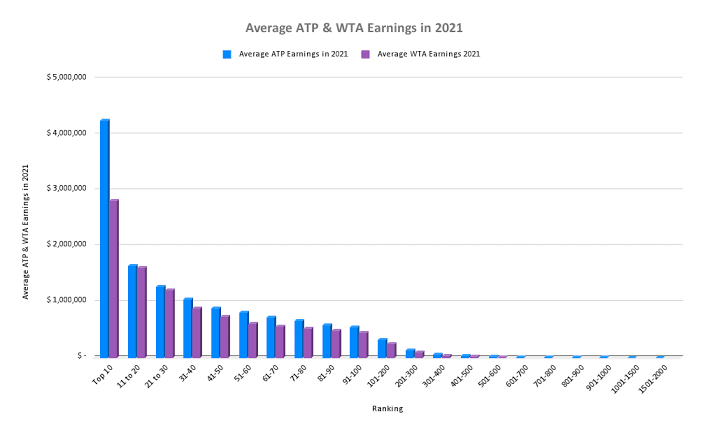
Out of the 3620 pro players, you would need to be in the top one hundred ranked players to even be able to afford a steady livelihood. That is 2.7% of all pro players, meaning that the probability of economic success is low for 97.3% of the players. The top 10 players in contrast earn over 4 Million USD. In other words it’s a winner takes all market.
Practical Professions
Compare this to a profession such as medicine. According to Glassdoor (An American website where current and former employees anonymously rate companies), the average salary of a psychiatrist in the USA was about $208,000, with the highest earning around $800,000, while the lowest earned $126,470, an amount earned by a top 250 ranked tennis player!
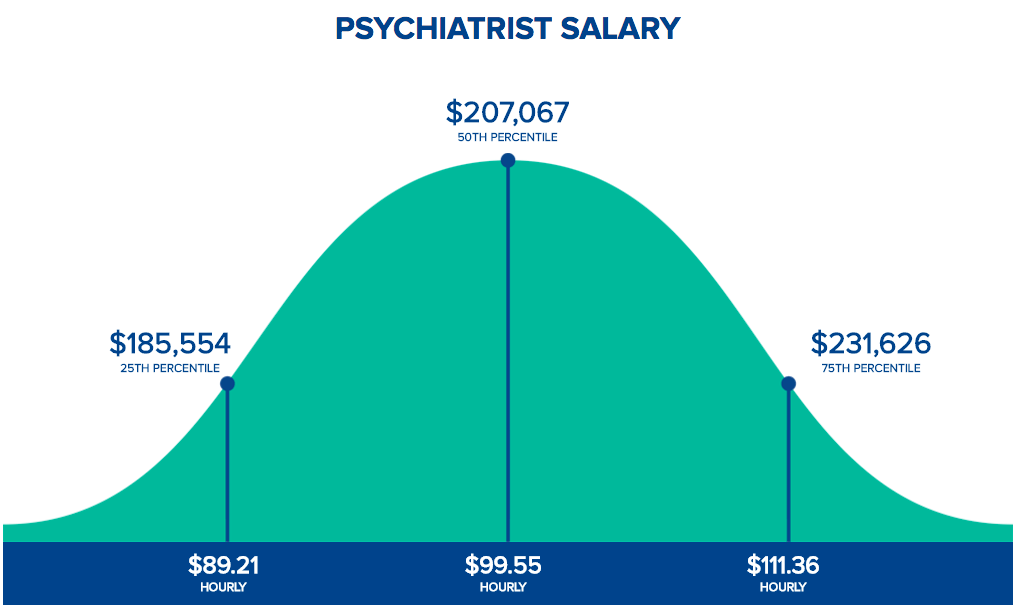
Other low risk professions like accountants have a similar distribution of earnings, a career also seen as financially stable
Accountants made a median salary of $77,250 in 2021. The best-paid 25% made $99,800 that year, while the lowest-paid 25% made $60,760.
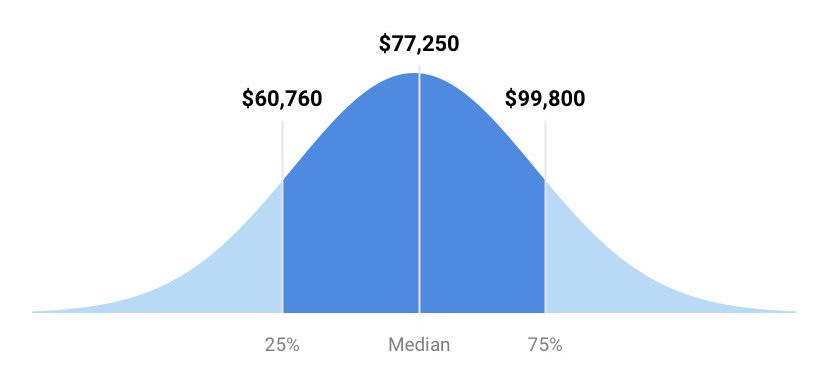
Although there might be discrepancies from speciality to speciality, within a low risk field the salary distribution is generally lower, which means the values are more tightly clustered around the mean value. This means that doctors or accountants with the lowest wages can still afford a reasonable standard of living which provides security and financial stability.
Selecting a Career
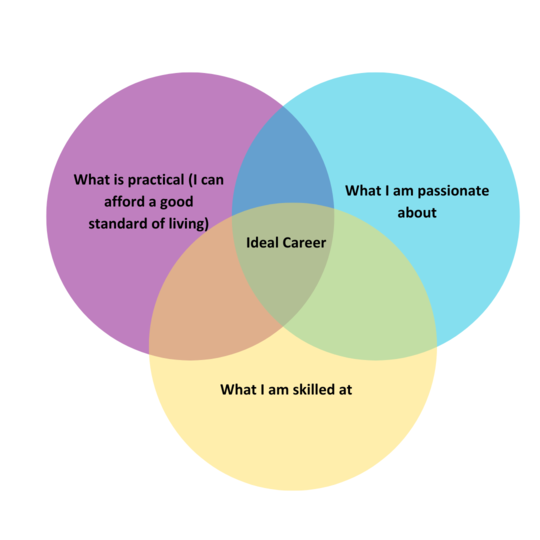
If you can find a career that you are passionate about (like doing) and it happens to be a low risk profession, you are one of the lucky ones.
The conflict arises when you are deeply passionate about something that does not have a realistic chance of success (i.e. high risk profession). Individuals who are passionate about their work are more likely to be engaged, persistent and willing to put in extra effort, but without a solid market, these efforts may be in vain. So what can you do if you fall in this bracket? One option is to create a safety net to fall back on if the passion project turns out to be unsuccessful. For example, getting a degree in business or accounts while training to be an actor or learning a technical skill like video editing.
Dr. V. Ramakrishnan, Director of CS Academy says that “It’s difficult to identify what you are passionate about in high school. What is important is to focus and do whatever you are doing at that time to the best of your ability and new avenues will always open up.”
In the pursuit of a fulfilling career, balancing passion and practicality is key. Exploring, excelling and staying open to opportunities can lead to unexpected benefits.
Shivi Vikram – AS Level, CS International.
Cover Illustration – Ananya Annush – Grade 12, CS Academy.


